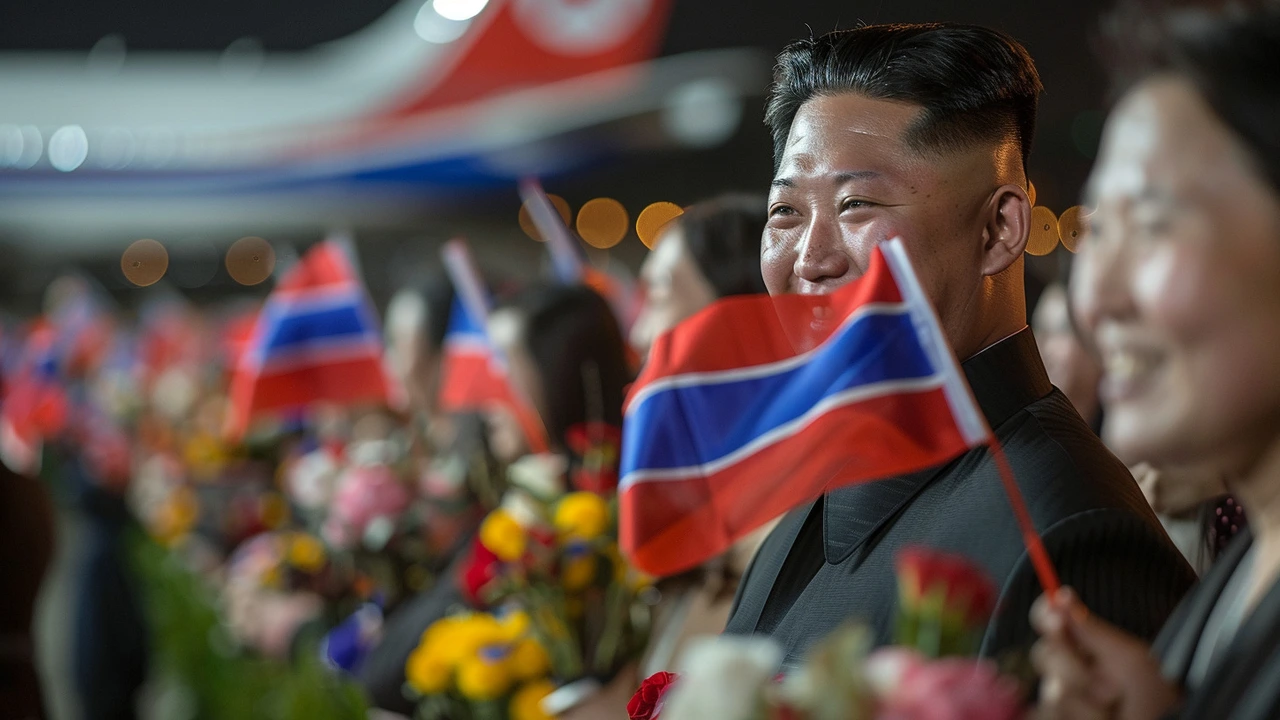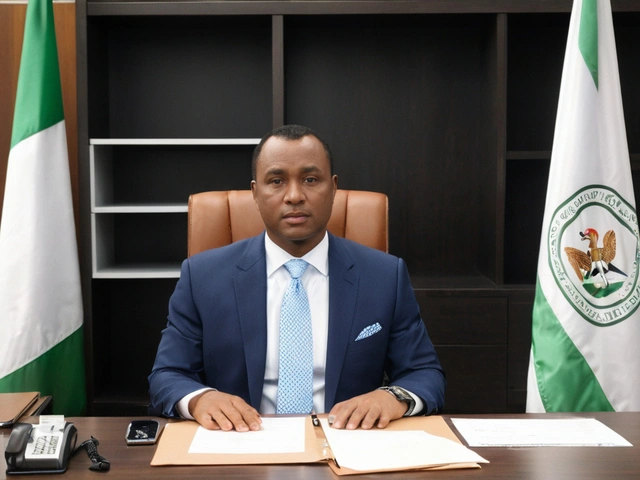Unsettling Visit: Putin in North Korea
In a move that has reverberated across the global stage, Russian President Vladimir Putin is slated to visit North Korea. The announcement of this visit has sparked significant concerns about the potential for deepening military cooperation between the two nations. Observers worldwide are keenly monitoring this development, given its likely implications for regional stability and global geopolitics.
The backdrop of Putin's visit is marked by heightened tensions on the Korean peninsula. Recently, there have been several provocative actions, including the release of rubbish-filled balloons from North Korea into South Korea. These incidents have frayed nerves and escalated the existing friction between the two Koreas. In response, South Korea has taken a firm stance by scrapping its 2018 military agreement with North Korea and resuming loudspeaker propaganda broadcasts across the border, a symbolic act viewed as a precursor to conflict by Pyongyang.
Strategic Motivations: Weapons and Oil
Putin's visit to North Korea is believed to be driven by strategic considerations. Analysts suggest that Russia is in dire need of weaponry, likely to bolster its efforts in the ongoing conflict in Ukraine. On the other hand, North Korea is experiencing a severe shortage of oil and energy resources, commodities that Russia could provide. This potential exchange of interests raises the specter of a more formalized and substantial security partnership between the two nations.
The nature of this military cooperation is causing alarm, especially given the possibility that North Korea might supply Russia with high-caliber artillery shells and rockets. The implications of such transfers are significant, particularly in light of the broader international efforts to isolate and penalize Russia for its actions in Ukraine.
International Concerns and Reactions
The international community, including the United States and South Korea, has expressed deep concerns over Putin's visit to North Korea. Such concerns are rooted in the potential shifts in regional dynamics that could arise from this visit. Both nations are wary of any actions that could undermine regional peace and stability, and they have made their stance clear through diplomatic channels.
The composition of Putin's delegation is telling. It includes high-level officials such as Defence Minister Andrei Belousov, Foreign Minister Sergei Lavrov, and heads of the Russian space agency. Their presence suggests that discussions will likely cover not just immediate military needs but broader cooperation that could include technological and space collaboration.
Impact on Inter-Korean Relations
The visit is likely to have far-reaching consequences for inter-Korean relations as well. The strained ties between South and North Korea could be exacerbated by any formal military pact between North Korea and Russia. There are already concerning signals, such as South Korea's decision to resume loudspeaker broadcasts, a move that Pyongyang has historically interpreted as hostile.
Moreover, analysts are keeping a close watch on the possibility of discussions about North Korea's involvement in the Brics alliance. This potential inclusion would signify a shift in global alignments, further complicating the geopolitical landscape.
Broader Implications
Putin's visit to North Korea comes on the heels of a peace summit held in Switzerland, an event to which Russia was notably not invited. This exclusion highlights the ongoing rift between Russia and Western nations, particularly those backing Ukraine. The timing of the visit underlines the urgency with which Russia is seeking new alliances and support systems in the face of mounting international sanctions and diplomatic isolation.
For North Korea, the visit presents an opportunity to break out of its isolation and secure critical resources. The country's economy has been severely weakened by stringent international sanctions, and aligning with Russia could provide a much-needed lifeline. However, this alliance also carries risks, especially if it leads to increased international scrutiny or additional sanctions.
The Road Ahead
As the world watches, the significance of Putin's visit cannot be overstated. It marks a critical juncture not only for Russia and North Korea but also for global politics. The potential shifts in alliances, the exchange of military resources, and the diplomatic fallout from this visit will likely be topics of extensive analysis and debate in the coming months.
The situation remains fluid, and the international community will need to remain vigilant, ready to respond to any developments that threaten regional or global stability. The consequences of this visit could resonate far beyond the Korean peninsula, influencing geopolitics in ways that are yet to be fully understood.






